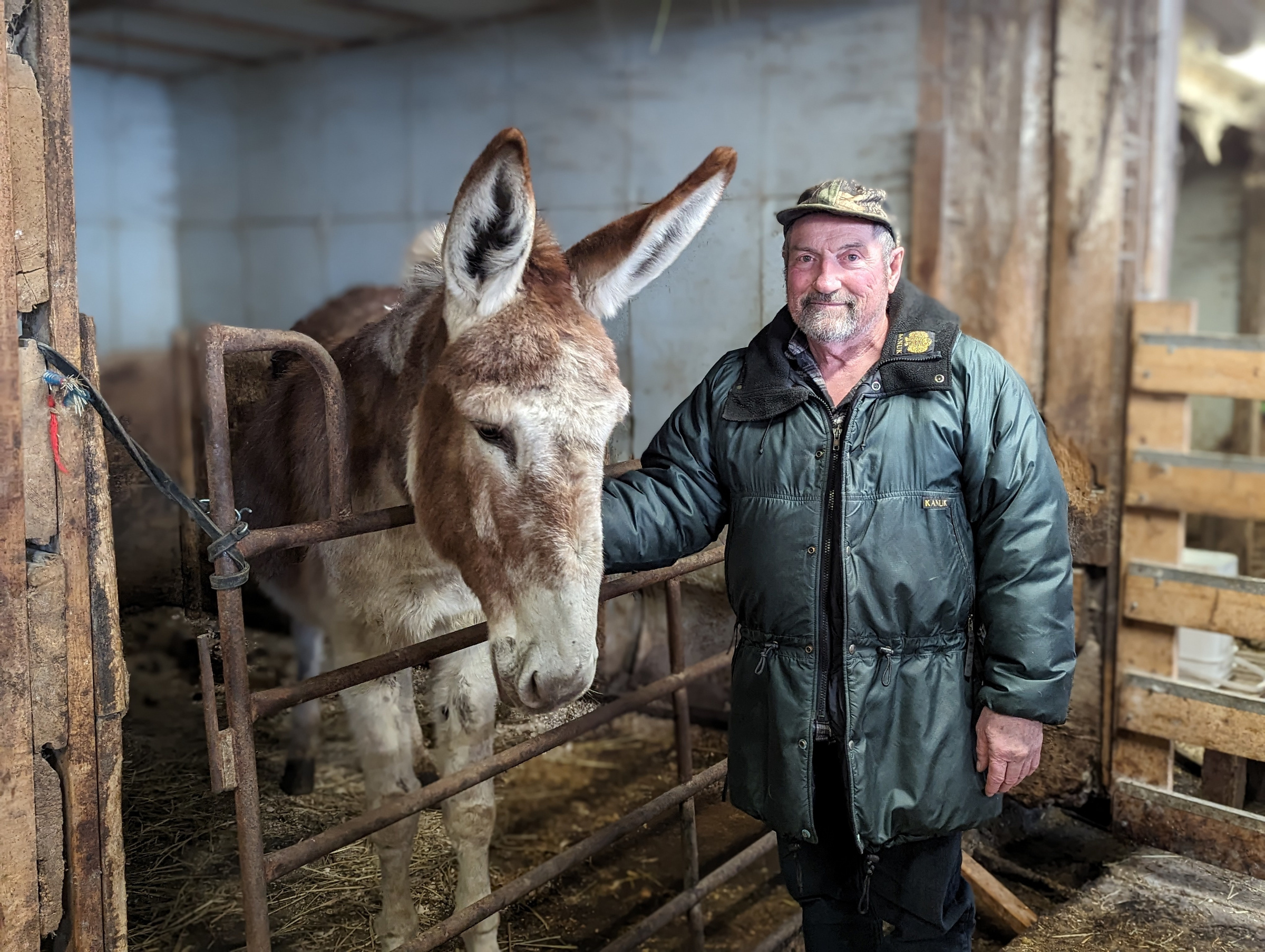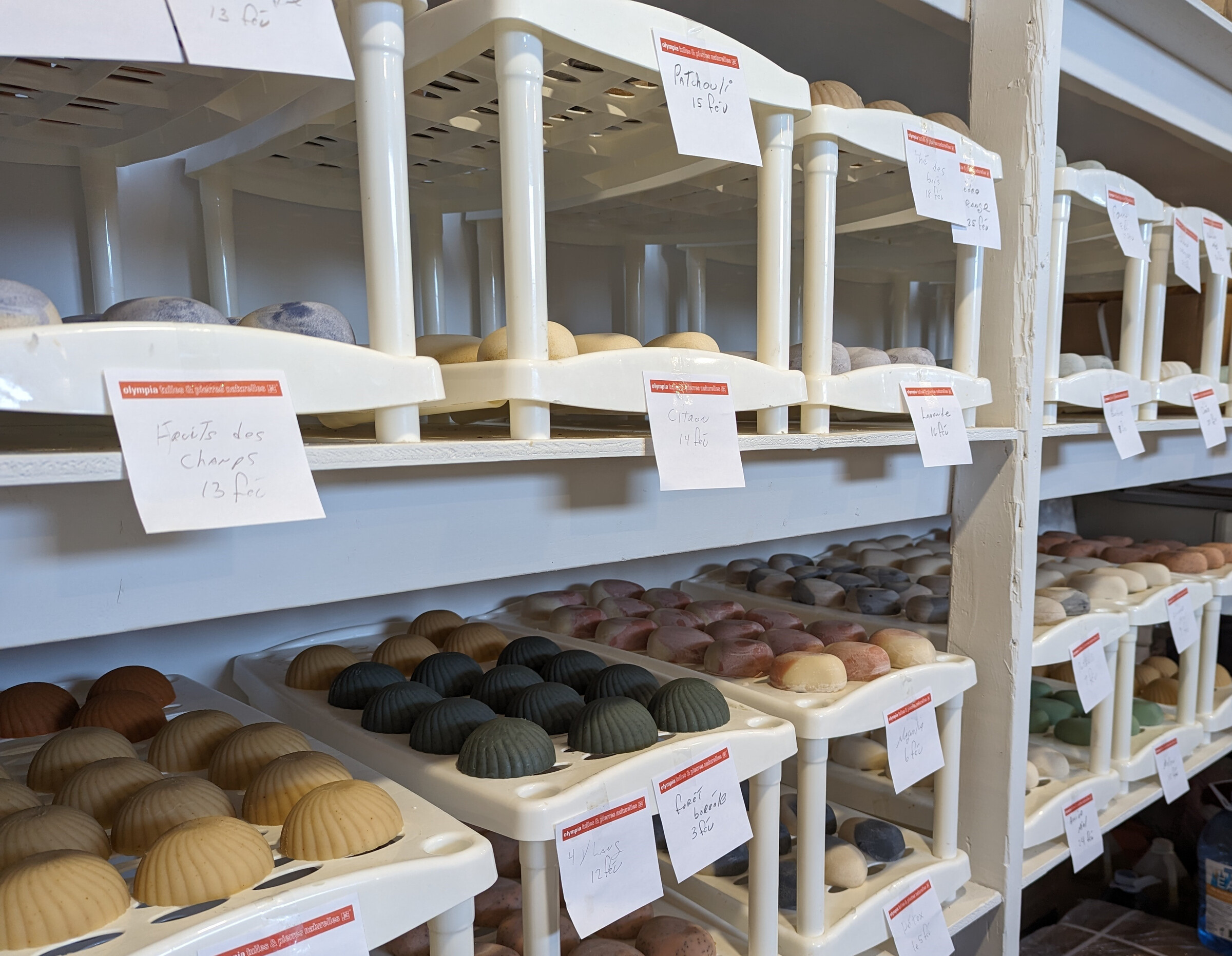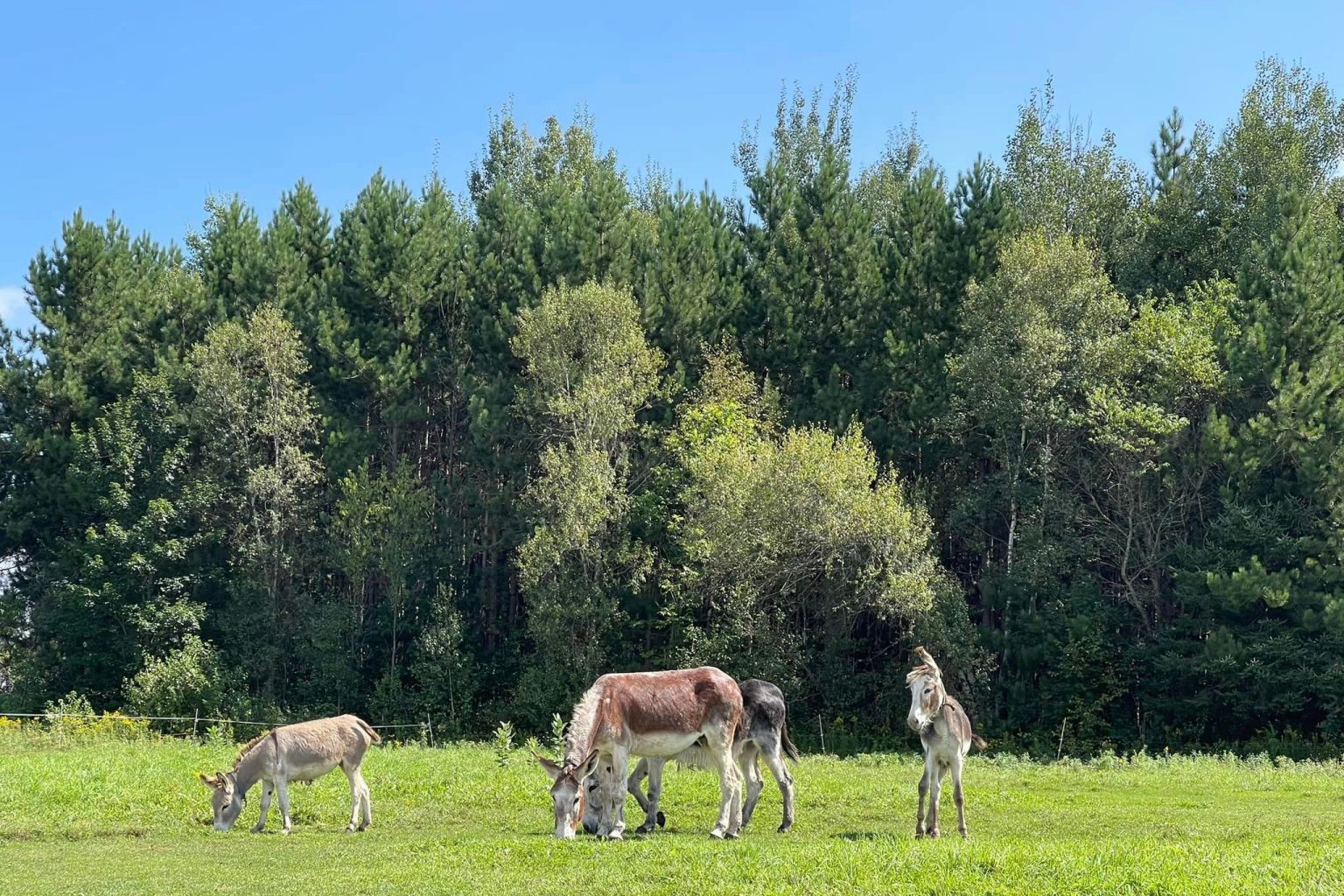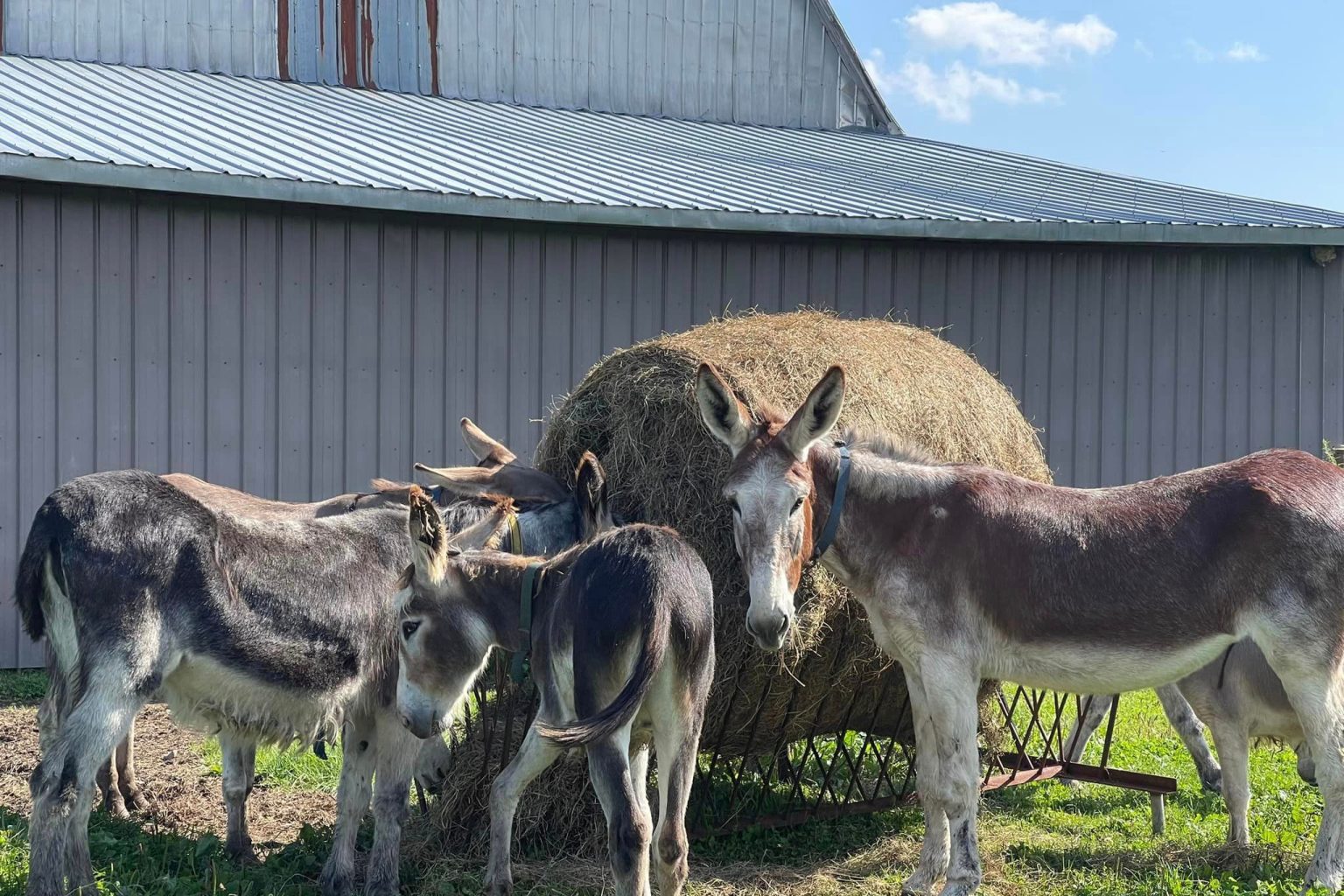Charette. Florian Saint-Yves, owner of Ferme Floriâne de Charette, develops artisanal body products from donkey milk. His donkey farm began nearly 15 years ago through a fortunate set of circumstances.
Florian Saint-Yves is passionate about horses. Having farmed for generations, he not only had horses, but also chickens, pigeons, goats, dogs, cats and more. “I was born here on the farm. I am fourth generation. So it was my great-grandfather who cleared this land.”
His story with donkeys began when he adopted a new mare in 2010. She had been living with a donkey for many years, so they had a great bond. That's why he had to bring the two animals to his farm. “When I got to my farm, I sent the mare and the donkey out into the field with the Canadian cows I had. The mare came there like a queen. She loved cows! On the other hand, the donkey didn’t like cows. She stood aside.” The donkey isolated herself in this way and ate the leftover hay after the herd passed.
“I thought she was a bit pathetic so I started feeding her separately. It didn't take long, maybe on the third day, I noticed she had a recognition behaviour. “I was very surprised, I even thought it was a coincidence, but no,” says Florian. St. Yves. Thus he discovered the intelligence and sensitivity of donkeys. The following year, he adopted a few donkeys to form the first quadruplets. Since then he has had as many as 29 donkeys, but now prefers to have a herd of between 15 and 20 donkeys.
Milk properties
“Donkey milk has many characteristics. On the European side, it is very well known. On our American side, it is less so. We do not have a large number of donkeys. In Quebec, we have less than 1,000 donkeys, so there are not necessarily A lot of products are made here.”
A donkey can produce up to 2-3 liters of milk per day, which is very little compared to a cow that produces about 30 liters per day. Donkey milk is rich in protein, vitamin E, omega-3 and more. “This milk was used if we go back a few hundred years to save premature babies because donkey milk is close to breast milk and even more digestible for premature babies.”
Thanks to its many properties, donkey milk produces nutrient-rich products. “For example, donkey milk shampoo provides balance because this milk penetrates well, so when you wash your head, the shampoo gets into the scalp,” says Florian Saint-Yves.
Product development
“My goal was never to make money from donkeys, I just wanted it to be self-financing. I don’t like the idea of selling babies,” says Ferme owner Floriane. And so he began designing artisanal products using donkey milk.
“When we started, it was a lady from Trois-Rivières who made our artisanal soaps. She was very experienced in designing soap, but she wasn’t particularly familiar with donkey milk. They worked together to design soaps from donkey milk. They tried a recipe that was 30% donkey milk, but at this ratio, drying was difficult. Thus the final recipe ratio was 21%. For comparison, other artisanal products sold in Quebec using donkey milk are around 5%. Florian Saint-Yves wanted to aim for high quality in its products rather than growing the company.
“I always try to be very natural in all the products I use. For the most part, everything is organic, and otherwise, it remains high quality. He received training to understand the chemistry behind soap design. He then moved on to developing other products, such as shampoo bars And body creams. He also worked on adapting products to specific needs, such as sensitive skin or hair loss.
Ferme Floriane's artisanal products are currently distributed at Proxim Pharmacy in Charette And one in Trois-Rivières. Florian Saint-Yves also participates in several craft markets in the Mauricie area and in the province. To follow Ferme Floriane's activities, visit Official Facebook page.

“Hardcore beer fanatic. Falls down a lot. Professional coffee fan. Music ninja.”









More Stories
SALES / PHOTO SALES – Nikon D850 “5 Star” Bare Body Photo Body at €2,539.00
Discovering a new turning point under the Antarctic ice sheet! What are the consequences?
Record number for an insect!